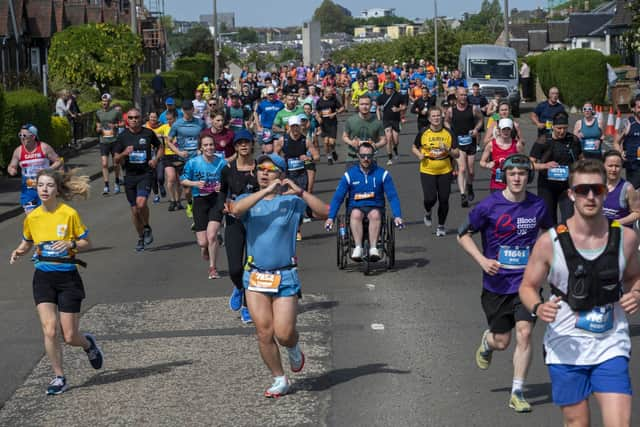Cost-of-living crisis making participation in sport more difficult, figures show
A quarter of people in Scotland never do any exercise with the cost-of-living crisis contributing to a divide, new statistics showed.
A survey for the Observatory for Sport in Scotland found that only 46 per cent of the adult population in regularly take part in sport or exercise.
Advertisement
Hide AdAdvertisement
Hide AdPolling revealed a growing economic divide in sport and physical activity levels since the pandemic across 1,029 adults surveyed in January.


The survey, conducted by Survation and commissioned by True North for the Observatory for Sport in Scotland (OSS), found participation is becoming increasingly polarised, with falling rates of activity among those in lower income groups.
The survey found only 36 per cent of adults with incomes under £20,000 per annum take part in regular sport or physical activity, compared to 59 per cent of adults with incomes over £40,000 per annum.
While there is widespread recognition of the health benefits of sport and exercise (79 per cent of respondents), the survey found that only 46 per cent of the adult population in Scotland regularly take part in sport or exercise-related physical activity.
A further 29 per cent take part only occasionally, but a quarter (25 per cent) of adults do not do any sport or exercise at all.
Charlie Raeburn, founding board member of the Observatory of Sport in Scotland said: "We are very concerned about the relatively low levels of participation in sport and physical activity in Scotland as a whole.
"Our biggest concern is that the divide between those who are active and those who are inactive is growing wider along economic lines.
"The numbers show a net 8 per cent fall in the sport and activity levels of those on low incomes, and a net 7 per cent increase in the sport and activity levels of those on higher incomes compared to pre-pandemic levels.
Advertisement
Hide AdAdvertisement
Hide Ad"That widening gap should ring alarm bells, given health inequalities in Scotland and what the significant health benefits of keeping active.”
Mr Raeburn called for “fresh thinking” to encourage participation across society.
He said: "A massive 90 per cent of over 65s believe sport and physical activity is important for their health, but only 35 per cent actually take part regularly.
"Of those that don't participate, nearly half (46 per cent) say it's because of existing health issues.
"Among younger adults, 67 per cent of those aged 25-34 years say they are likely to participate less because of cost-of-living pressures, also cited as one of the main barriers to participation among women who are not currently active.
"These should not be insurmountable barriers, but we need a fresh approach.
"At OSS we know that taking part in sport and exercise-related physical activity improves health and well-being at every stage of the life cycle.
"Government at all levels and across all parties needs to take concrete action to tackle the barriers to participation as part of a constructive conversation about Scotland's deep-seated health inequalities.”
Comments
Want to join the conversation? Please or to comment on this article.